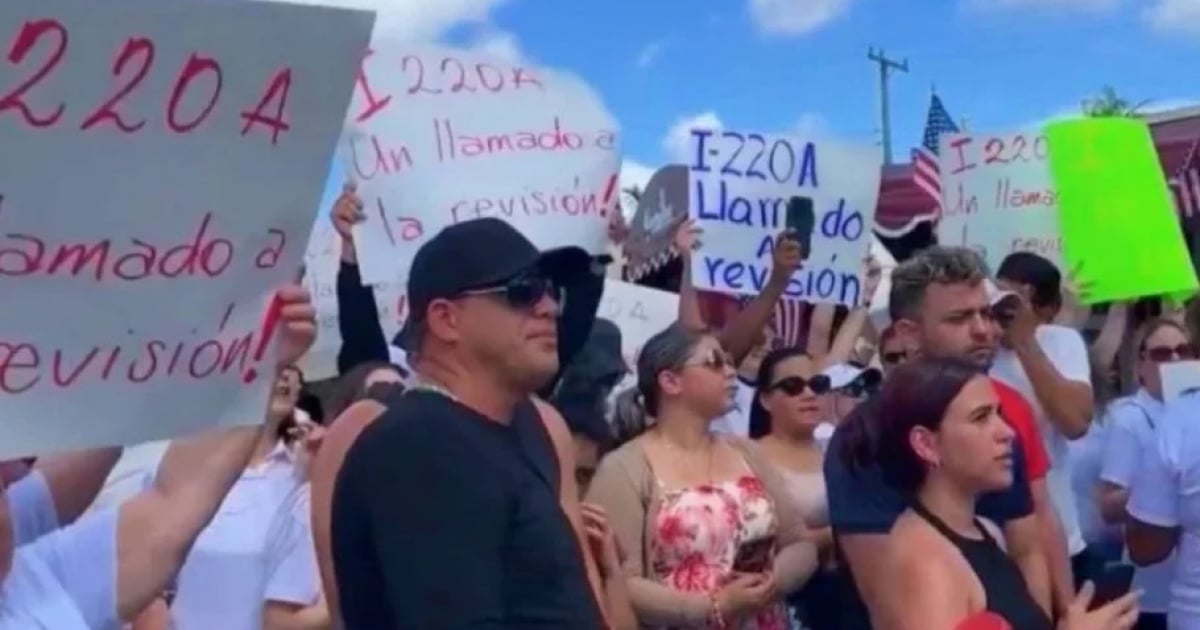Eight Cuban women who had been detained by the United States Immigration and Customs Enforcement (ICE) are celebrating their release after spending several weeks in immigration centers in South Florida. Initially arrested during what they believed were routine check-ins at ICE offices, these women faced deportation risks due to lacking work permits and favorable asylum decisions.
For two months, they navigated through various migrant centers until their release last Tuesday. Despite pending court cases, the women are now free.
Unexpected Detention Experience
The detainees, who were issued I-220A notices requiring them to appear before an immigration judge, were unexpectedly detained during their follow-up appointments. According to their accounts shared with Telemundo 51, they were shackled and waist-chained—procedures outlined in ICE's detention protocol but emotionally jarring for the women involved.
Beatriz Monteagudo, 25, the last to be released, recounted feeling like she had committed a severe crime. "I know it's part of the procedure, but for me, that was the most traumatic part," she explained. Monteagudo was released on bond thanks to a legal team that took her case pro bono, and she shared space with 18 other women, all facing the same uncertainty about their futures.
Political Intervention and Support from Congresswoman Salazar
On Thursday, the eight women met with Florida Congresswoman María Elvira Salazar, who recently celebrated their release. Salazar told Telemundo that South Florida lawmakers are working to clarify to the Trump administration the different immigration statuses of individuals who have entered the U.S. irregularly.
"I'm confident that as time goes on, the situation will be better understood," Salazar stated. The Cuban-American politician announced plans to reintroduce the Dignity Act in June, describing it as a "Solomonic and revolutionary" law that will include provisions for those with I-220A status.
Challenges in the Asylum Process
Immigration attorney Liudmila A. Marcelo disclosed that the women's detentions were random and emphasized that their defense strategy should prioritize asylum cases. "It's essential to prepare thoroughly since judges are demanding more evidence," she noted. Another approach could be pursuing parole status if an existing lawsuit succeeds.
Uncertainty and Hope
With legal backing from Congresswoman Salazar and community organizations in Miami, the eight women are now gearing up for their immigration court hearings. A favorable outcome would grant them the right to stay in the U.S., work legally, and eventually seek permanent residency.
In the meantime, they have returned to their families under strict supervision. They are required to report to ICE regularly and adhere to supervised release conditions.
Understanding ICE Detention and Release Procedures
What is an I-220A notice?
An I-220A notice is a document issued by ICE that requires an individual to appear before an immigration judge. It is not a final decision on their immigration status but indicates ongoing legal proceedings.
How can detainees challenge their detention?
Detainees can challenge their detention by seeking legal assistance and preparing a robust defense for their asylum cases. They may also pursue parole status if relevant legal avenues are available.
What role did Congresswoman María Elvira Salazar play in this case?
Congresswoman Salazar advocated for the women's release and is working on legislative measures to address immigration status issues for individuals like those with I-220A status.
